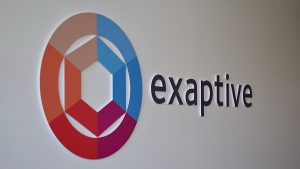Last Updated on December 14, 2017, 9:10 PM | Published: December 14, 2017
Jonathan Yarbor and James Ross are partners in the tech startup Nodecraft, a worldwide game hosting platform.
“We had the news streaming all morning watching for the net neutrality vote,” Yarbor told Free Press Thursday at the end of the day.
And for them, the worst thing that could have happened, did.
The Federal Communications Commission voted to rescind net neutrality rules that were put in place during the Obama administration to insure internet providers would give equal treatment to most users.
“This affects us directly,” said Yarbor.
Cloud-based
Nodecraft is cloud-based with customers across the world, all depending on a reliable connection to the servers.

The company provides hosting for several online, interactive games with the wildly popular Minecraft representing the most traffic to their servers.
If they start getting charged for traffic peaks when players interact, it could have a radical effect on the fledgling company.
Is Yarbor just letting his fears run away with him? He doesn’t think so.
“We’ve already seen how it can go,” said Yarbor. “Netflix has already had to pay these fees. What’s to say we wouldn’t have to?”
Step backward
Tommy Yi, is the founder of co-working space StarSpace46 (an in-kind sponsor of Free Press). He knows how critical a fair and well-regulated internet is to the stability of the many startups that use the space as their office.
“It’s a step backward in promoting competition within that space,” said Yi.
“I know there’s been a lot of false information that removing net neutrality would increase competition. But the reality is that because of service provider … agreements…, they have a monopoly in their region.”

He said there is “no true competition.”
Because of the monopolies, removing net neutrality rules now makes it possible for the providers to create what Yi calls “tollways.”
“They have sole discretion of being able to pick and choose who’s able to go on which lane and at what price,” Yi said.
“More and more people these days believe that access to the internet should be considered more like a utility.”
Currently, it is extraordinarily difficult for anyone to compete with utilities the public depends on.
And so, states regulate the companies that run utilities such as water and electricity, especially when it comes to rates consumers pay.
Power in networks
Frank Evans, data scientist with Exaptive, talked to Free Press Thursday after the FCC decision and was concerned about the impact as well.
Exaptive provides a platform that allows their clients to build powerful applications for evaluating data in many different ways.
“Networks are very near and dear to our hearts at Exaptive,” he said.
“First of all, we are an internet company and that’s the kind of primary network of the world.”

But he said networks matter to them because there is “a huge amount of power” in the effects of using a network to “effectively communicate and collaborate…at all levels of technology.”
Exaptive has only 25 employees, but deploys their platform all over the world.
“We work with a lot of data,” said Evans.
“We work with larger quantities of data than 10-thousand-person companies would have worked with just a few years ago, and technology has made that possible.”
But by the FCC dropping net neutrality rules, their ability to compete with bigger competitors may be hobbled.
Until Thursday’s FCC decision, net neutrality rules would stop a network provider from speeding up or slowing down connections to the internet according to their origin and destination. But that has changed.
Evans explained that after the decision, there is nothing to stop a provider from working out a deal with a bigger competitor to speed up their data stream to customers and slow down the stream connecting Exaptive to their customers.

He pointed out that in the past the government has regulated railroads, utilities and telephone companies to ensure that people had equal access to the services.
As an example, he said that telephone companies were allowed to charge for the distance of a call and/or the time spent on the call, but not according to who was calling and who was being called.
Without net neutrality, however, it will be possible for internet provider monopolies to charge according to where the traffic is coming from and where it’s going. That is a big change.
Possible actions
Lawsuits were filed against the FCC almost immediately after the decision Thursday.
Opponents are hopeful they can pressure Congress and the U.S. Senate to act and reverse the commission’s decision.
Founder, publisher, and editor of Oklahoma City Free Press. Brett continues to contribute reports and photography to this site as he runs the business.










